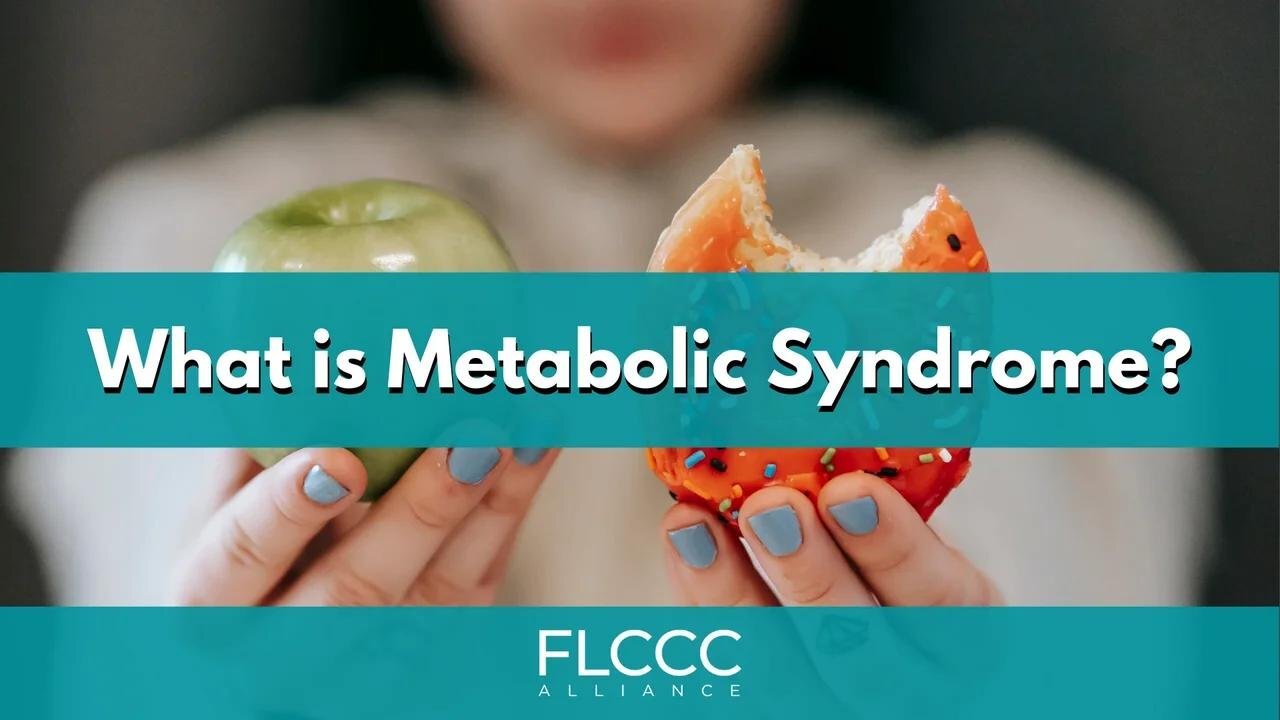Premium Only Content

What is Metabolic Syndrome?
The National Institutes of Health (NIH) defines metabolic syndrome as “a group of conditions that together raise your risk of coronary heart disease, diabetes, stroke, and other serious health problems.” Metabolic syndrome is also called insulin resistance syndrome. More than 30% of adults in the United States meet the diagnosis criteria for metabolic syndrome. 1/4th of the world population is estimated to have metabolic syndrome.
Metabolic syndrome includes conditions like:
• High blood pressure
• High blood sugar
• Increased body fat
• Abnormal cholesterol
These symptoms turn into organ system diseases such as Type 2 Diabetes, heart attack, and stroke. This can also accelerate the aging process of not only the organs, but your whole body!
High blood sugar is the cause of insulin resistance and these are factors that influence insulin resistance:
• Genetics
• High sugar intake
• Fat accumulation in the liver
Risk factors for metabolic disease include:
• High carb/processed food diet
• Obesity
• Inactive lifestyle
• Family history of diabetes
• Gestational diabetes
• Non-alcoholic fatty liver disease
• Polycystic ovary disease
• Smoking
• Sleep apnea
• Increased age
• Ethnicity
• Long covid
• Post-vaccine syndrome
What can I do to prevent metabolic syndrome or improve my body's condition if I have already been diagnosed?
1. Get screened for diabetes and heart disease.
2. Make the commitment to yourself to choose the right foods to eat and adopt intermittent fasting unless you have medical reasons why you cannot.
3. Plan time in to exercise and block off the time in your calendar. Make it become a healthy habit. Do something fun outside!
4. Add these supplements/drugs:
• Berberine
• Metformin
• Magnesium
• Reseveratrol
• Melatonin
• Cinnamon
• Omega-3
• Probiotics
5. Reduce stress. Add yoga, tai-chi, breathing exercises, and positive intention setting into your routine.
6. This is a lifestyle change, not a temporary diet or exercise plan. Learn to love this new style of living.
Please note: If you are scheduled for surgery, let your anesthesia team know if you take supplements. Sometimes they can interact with anesthesia medication.
For more information:
FLCCC.NET
We are a 100% donor-supported 501(c)(3) non-profit organization — our work would not be possible without you. Your gifts help us expand our reach and share the latest research available, for the health and well-being of all.
To learn more, click here:
https://flccc.net
To donate online, click here:
https://covid19criticalcare.com/network-support/support-our-work/
To follow FLCCC, click here:
https://covid19criticalcare.com/follow-flccc-2/
To learn more about our protocols, click here:
https://covid19criticalcare.com/covid-19-protocols/
To register for weekly webinars, click here:
https://geni.us/FLCCC_Webinar_Register
To buy FLCCC gear, click here:
https://supportflccc.store/
Disclaimer:
This video is not intended to provide assessment, diagnosis, treatment, or medical advice; it also does not constitute provision of healthcare services. The content provided in this video is for informational and educational purposes only. Please consult with a physician or healthcare professional regarding any medical or mental health related diagnosis or treatment. No information in this video should ever be considered as a substitute for advice from a healthcare professional.
CSID: 131be1ec18b31975
Content Managed by ContentSafe.co
-
 LIVE
LIVE
Barry Cunningham
4 hours agoPRESIDENT TRUMP AND EL SALVADOR PRESIDENT NAYIB BUKELE PUT THE DEMOCRATS IN CHECKMATE!
15,925 watching -
 13:48
13:48
T-SPLY
1 hour agoEL SALVADOR TRIP FLOPS: Senator Slammed Hard!
4.99K11 -
 LIVE
LIVE
MrR4ger
19 hours agoBRAND NEW RPG - MANDRAGORA *ENTER FAELDUUM*
614 watching -
 LIVE
LIVE
Crypto Power Hour
3 hours ago $0.77 earnedFrom Wall Street Algorithms to Blockchain Disruption
387 watching -
 LIVE
LIVE
SilverFox
14 hours ago🔴LIVE - HUGE UPDATE! LORDS OF THE FALLEN 2.0
467 watching -
 4:38:41
4:38:41
Viss
5 hours ago🔴LIVE - Taking Wins all Over The PUBG Battleground!
34.3K2 -
 1:44:58
1:44:58
The Quartering
3 hours agoKarmelo Anthony Supporters SWAT Victims Dad, Hatchet Victim Dies, FSU School Shooter Update & More
112K71 -
 55:40
55:40
Tucker Carlson
3 hours agoConor McGregor’s Presidential Bid, Tariffs, Erasing Irish Culture, and Deporting Rosie O’Donnell
69.4K116 -
 1:02:55
1:02:55
Sean Unpaved
3 hours agoAaron Rodgers' Reflects On The Future, Playoff Showdowns & Ice Battles Begin!
14.5K -
 2:02:59
2:02:59
Tim Pool
3 hours agoKarmelo Anthony Debate: Use Of Force & Murder | The Culture War with Tim Pool
123K105